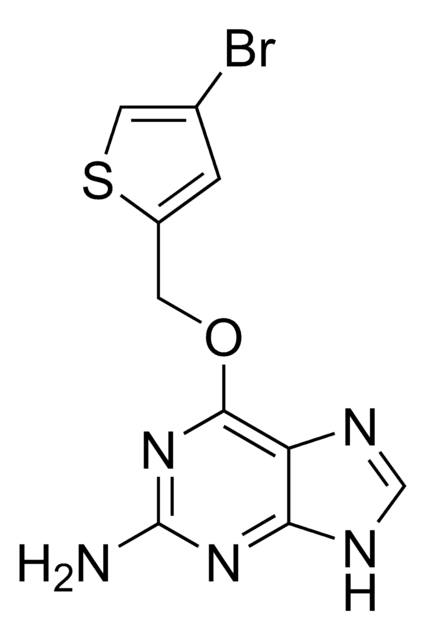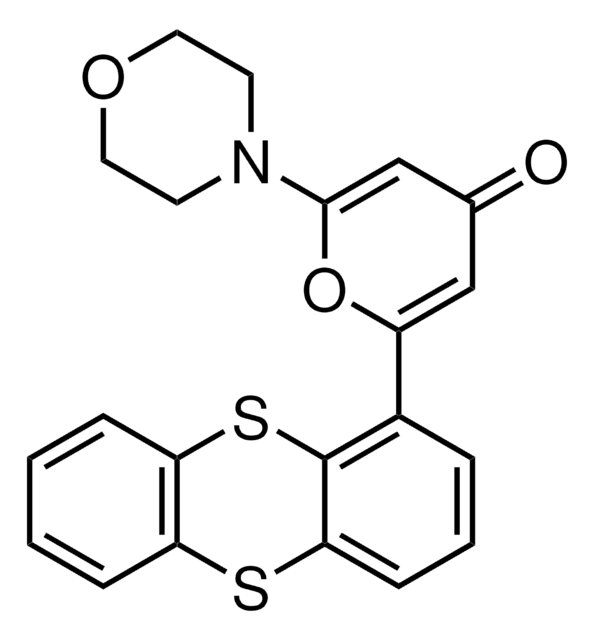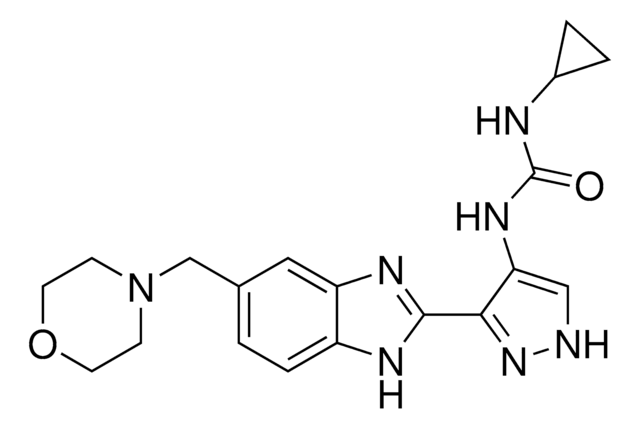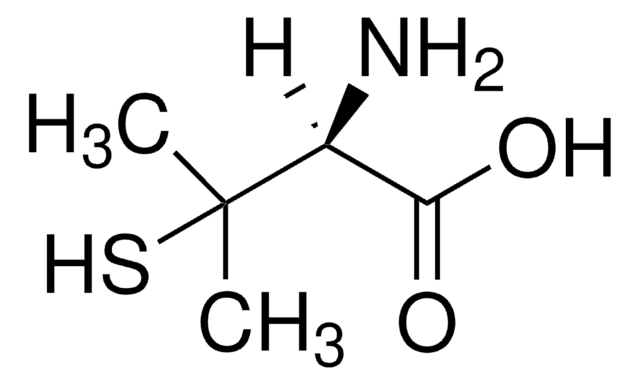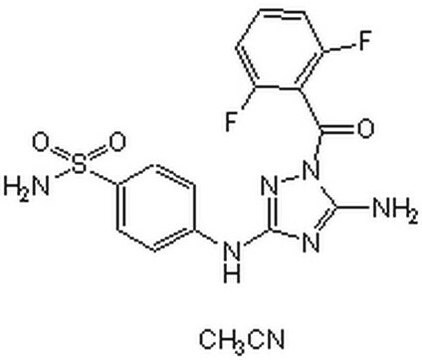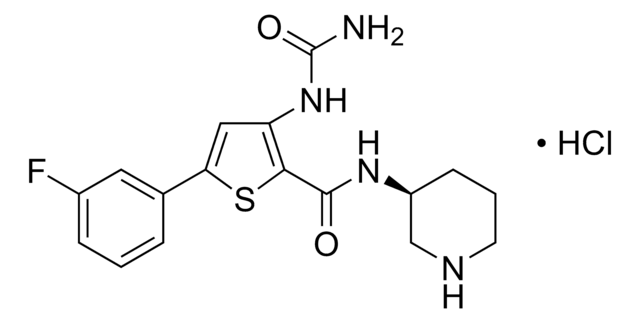추천 제품
Quality Level
분석
≥98% (HPLC)
양식
powder
색상
white to brown
solubility
DMSO: 20 mg/mL, clear
저장 온도
2-8°C
SMILES string
BrC1=CC(OC)=CC(Br)=C1NC2=NC(C3=C(C)N=C4N3C=CC=N4)=CS2
InChI
1S/C17H13Br2N5OS/c1-9-15(24-5-3-4-20-16(24)21-9)13-8-26-17(22-13)23-14-11(18)6-10(25-2)7-12(14)19/h3-8H,1-2H3,(H,22,23)
InChI key
XVOOCQSWCCRVDY-UHFFFAOYSA-N
애플리케이션
PTC-209 has been used as a B lymphoma Mo-MLV insertion region 1 homolog (BMI1) inhibitor to study its effects on:
- the cell viability of canine osteosarcoma (OSA) cell lines
- lipidated microtubule-associated protein 1 light chain 3 (LC3B-II) and Sequestosome 1 (SQSTM1) protein levels in ovarian cancer (OvCa) cells
- cardiac reprogramming efficiency in mouse embryonic fibroblasts (MEF)
생화학적/생리학적 작용
PTC-209 inhibits the expression of the oncogene BMI-1 (B lymphoma Mo-MLV insertion region 1 homolog), which encodes a polycomb group RING finger protein involved in cell cycle. PTC-209 lowers the self-renewal properties of colorectal cancer-initiating cells (CICs) The compound inhibits tumor growth, and reduces the levels of CICs present in colon cancer tumor xenografts in mice.
PTC-209 inhibits the expression of the oncogene BMI-1 (B lymphoma Mo-MLV insertion region 1 homolog).
특징 및 장점
This compound is a featured product for Gene Regulation research. Click here to discover more featured Gene Regulation products. Learn more about bioactive small molecules for other areas of research at sigma.com/discover-bsm.
Storage Class Code
11 - Combustible Solids
WGK
WGK 3
Flash Point (°F)
Not applicable
Flash Point (°C)
Not applicable
가장 최신 버전 중 하나를 선택하세요:
Inhibition of BMI1 induces autophagy-mediated necroptosis
Dey A, et al.
Autophagy, 12(4), 659-670 (2016)
Mohammad Alzrigat et al.
Oncotarget, 8(61), 103731-103743 (2017-12-22)
Multiple myeloma (MM) is a tumor of plasmablasts/plasma cells (PCs) characterized by the expansion of malignant PCs with complex genetic aberrations in the bone marrow (BM). Recent reports, by us and others, have highlighted the polycomb group (PcG) proteins as
Sami Al-Nadaf et al.
Veterinary and comparative oncology, 20(4), 871-880 (2022-07-15)
The BMI1 proto-oncogene, polycomb ring finger protein (BMI1) is a key component of the epigenetic polycomb repressor complex 1, and has been associated with aggressive behaviour and chemotherapeutic resistance in various malignances including human gliomas. Similar to humans, spontaneous canine
Anindya Dey et al.
Molecular cancer therapeutics, 17(1), 39-49 (2017-11-22)
BMI-1, also known as a stem cell factor, is frequently upregulated in several malignancies. Elevated expression of BMI-1 correlates with poor prognosis and is therefore considered a viable therapeutic target in a number of malignancies including ovarian cancer. Realizing the
관련 콘텐츠
We offer a variety of small molecule research tools, such as transcription factor modulators, inhibitors of chromatin modifying enzymes, and agonists/antagonists for target identification and validation in gene regulation research; a selection of these research tools is shown below.
자사의 과학자팀은 생명 과학, 재료 과학, 화학 합성, 크로마토그래피, 분석 및 기타 많은 영역을 포함한 모든 과학 분야에 경험이 있습니다..
고객지원팀으로 연락바랍니다.
